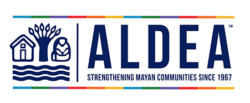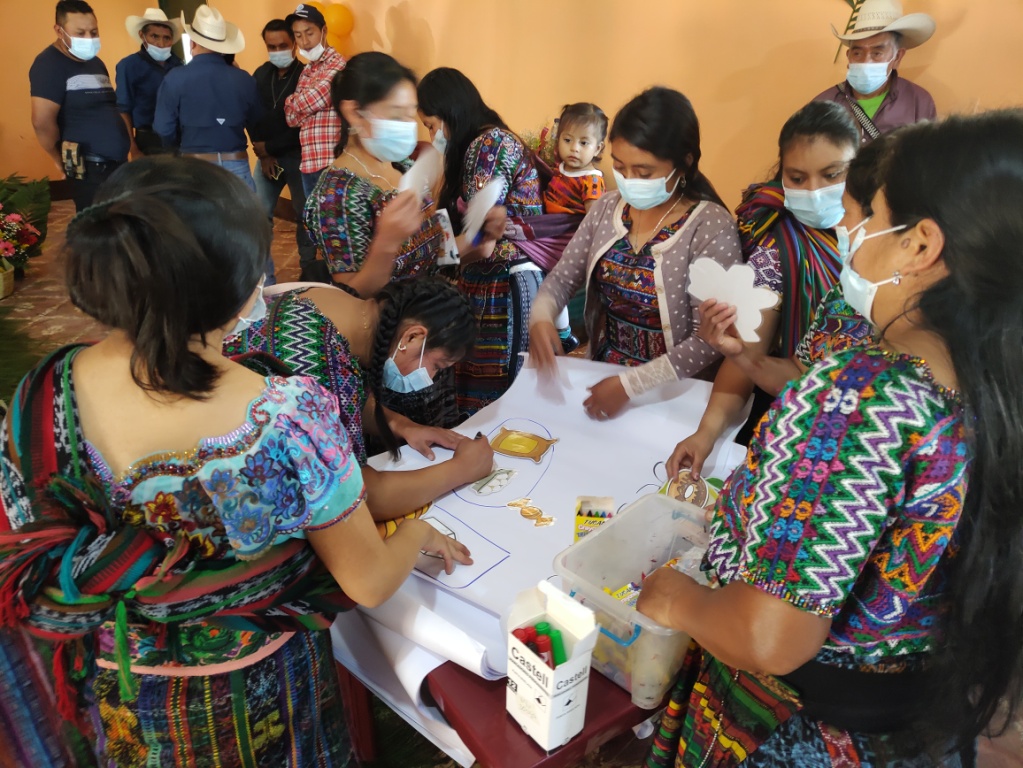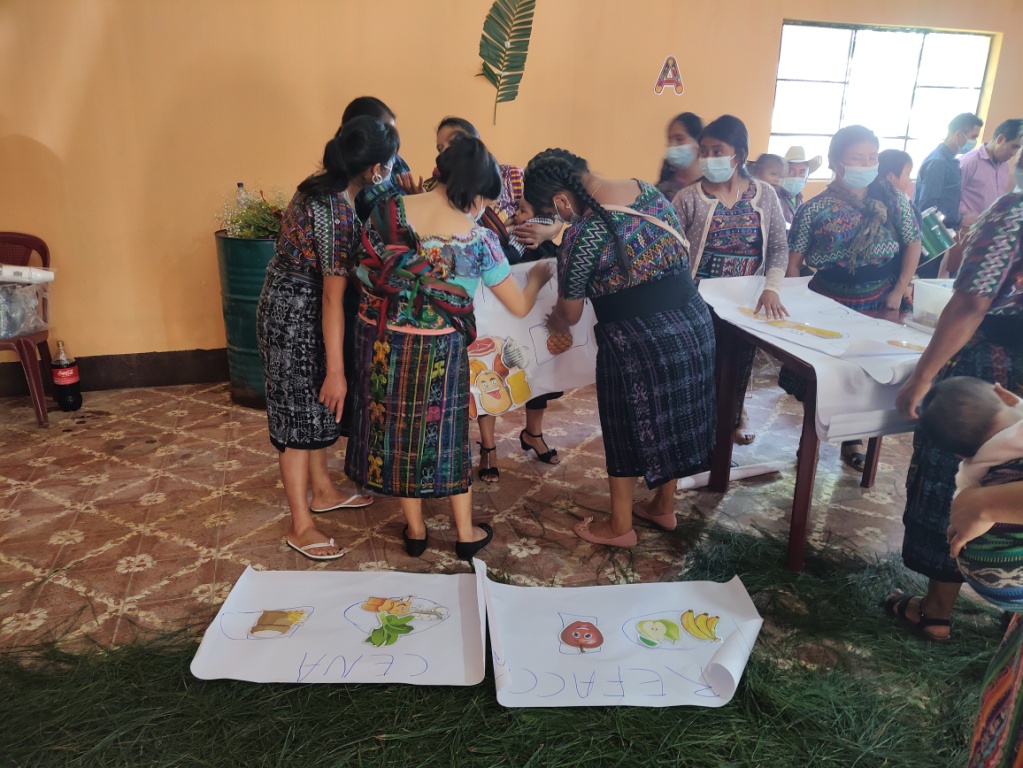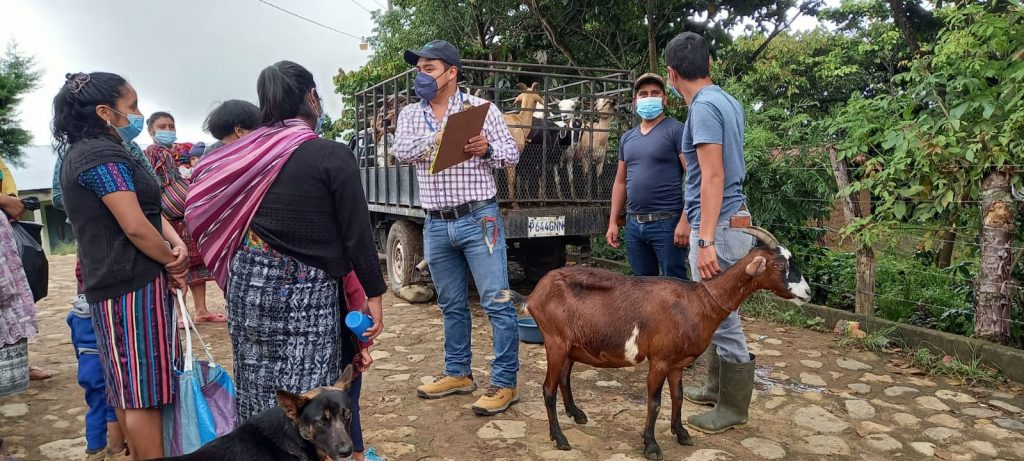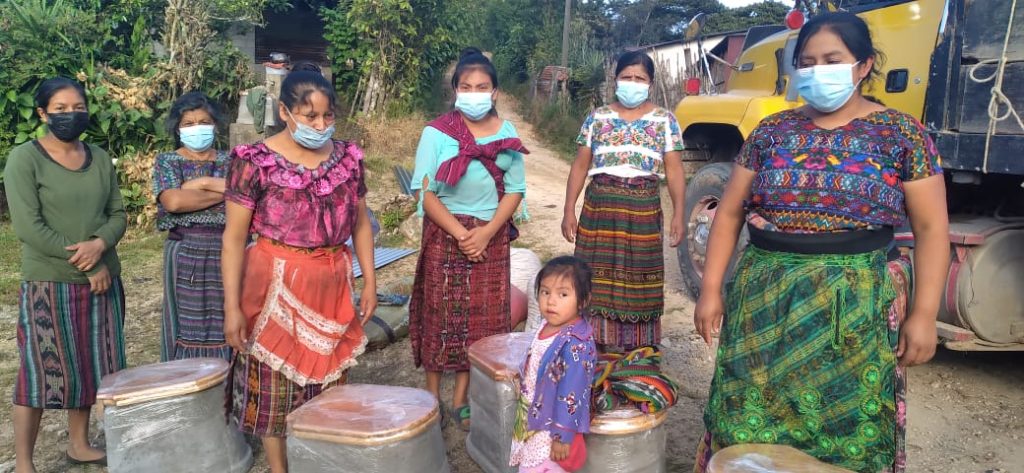Tonajuyú is a village of 210 families, or approximately 1,300 people. The community was founded in 1960 by 5 families. It is located 9 miles from the municipal seat of Chimaltenango. The name “Tonajuyú” comes from the Kaqchikel “juyu” or “hill” and the abbreviation of the name Antonia “Tona , because there is a local legend that a young woman named Antonia was put under a spell on a hill in the nearby forest. About 90 percent of the population is Catholic and 10 percent is Evangelical. 50 percent of community members speak the Kaqchikel language, and many also speak Spanish.
The main activity carried out by the community is agriculture; specifically they plant corn and beans, as well as the cultivation of avocado, tomato and potato, as the main means of subsistence for most families in the community. There are other people who work for wages and for each day worked they get Q40 or $5. There are also a few nurses, teachers, secretaries and accountants who have to travel to other towns to work.
Tonajuyú has one school serving 150 children from kindergarten through 6th grade. The community also has a high school where 65 students attend grades 7 through 9. There is a health post in the village, run by a nurse, that offers basic medical attention Monday through Friday. 95 percent of the homes have electricity, and 90 percent of the roads are dirt.
Our Partnership:
ALDEA and ABPD began working with Tonajuyú families in April 2022. Our goal is to reduce chronic childhood malnutrition now, while supporting the community in building their capacity to address further development challenges on their own into the future. We are working together on:
- Water, Sanitation & Hygiene: A potable water system, sanitary latrines, gray water filters, and efficient vented stoves will reduce the risk of gastrointestinal diseases and improve indoor air quality, improving health and allowing children to make the most of the nutrients they consume. These projects began in April 2022, with completion expected in March 2024.
- Family Planning: We provide training and family planning methods so that women and men have the opportunity to decide the number and spacing of their children. Work began in April 2022 with completion expected in March 2024.
- Community Mobilization & Empowerment: Trainings and activities with men, women, youth, and local authorities began in April 2022 with completion expected in March 2024.
- Nutrition Education: Trainings and activities began in April 2022 with completion expected in March 2024.
- Food Security (Sustainable Agriculture): Trainings and activities began in April 2022 with completion expected in March 2024.
- Disaster Risk Reduction: Activities will begin in February 2023 with completion expected in March 2024.
